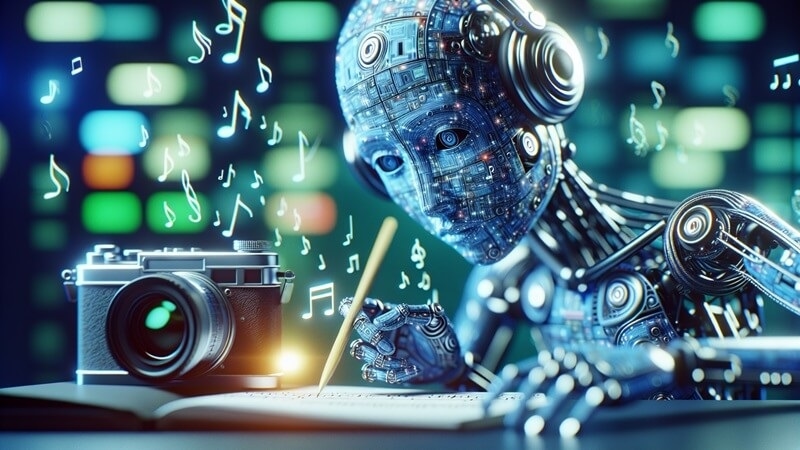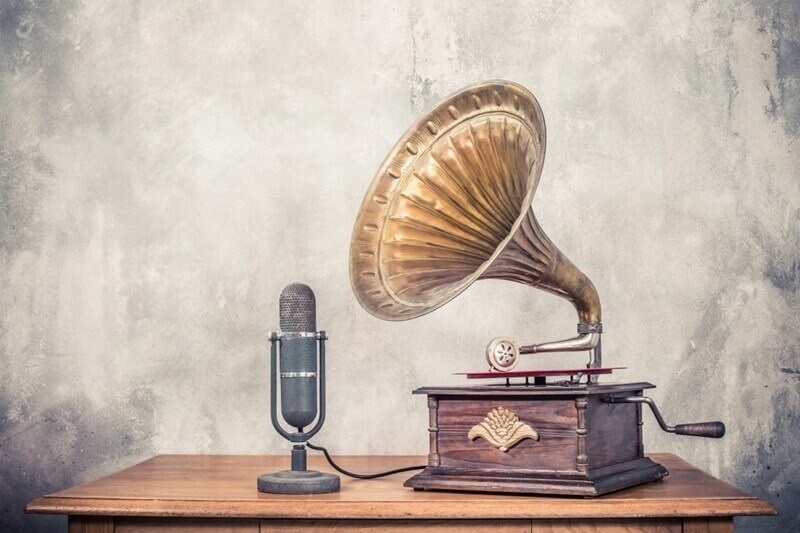
Music is not simply notes and rhythm. It acts as a transmitter of feelings, recollections and culture. Songs have been stories of love, struggle, joy and society over the decades. By the beginning of 2025, another competitor will be defining how songs are being made: generative AI. This technology is shaping the composition, experimentation and innovation of artists as well as influencing song history and culture in 2025, in ways that many had never imagined.
AI in music composition is becoming a significant source used by musicians, new and seasoned. In its simplest terms, AI can study the trends in music, comprehend the reason a song is catchy, and even come up with lyrics or melodies that sound human. As some may fear machines stealing creativity, AI is, in fact, making new artistic expression open.
Artists are not restricted to the normal ways of composing songs. Being able to try various chord progressions, rhythms, and styles in minutes with the help of AI tools, they can create a piece of art they like. Having a songwriting assistant who can propose hundreds of ideas at times when inspiration could be low is an option. AI never substitutes the touch of the artist, but it gives options and feedback.
Generative music tools give musicians an opportunity to work together with AI as though it were a member of the band. AI can propose an alteration to a tune, or some lyrical variations, or even a new musical bridge. It is through this type of collaboration that songs that are creative but also familiar are produced through a mixture of human emotion and machine intelligence.
There is no type of music that AI works with. AI in songwriting can be pop to country, hip-hop to classical and so forth. It is capable of learning the old songs to produce a style-specific product that assists artists in remaining authentic as they explore new concepts.

The evolution of music is closely tied to culture. Songs reflect societal moods, political climates, and human emotions. Song history and culture 2025 show how technology and tradition are coming together to shape the way we experience music.
Music has always evolved alongside society. Folk songs told stories of communities, while jazz expressed freedom and innovation. Rock and roll challenged norms, and hip-hop gave a voice to marginalised groups. Each era had its unique style, influenced by cultural events, technology, and social change.
Technology has consistently influenced music. Radios, recording devices, and streaming platforms have all changed how people listen and interact with music. Today, AI is changing not only how songs are made but also how they are consumed and appreciated.
Even as AI transforms songwriting, traditions remain vital. Cultural melodies, historical lyrics, and genre-specific techniques are preserved and respected. AI can learn these elements and integrate them into new songs, keeping the essence of music history alive while adding a modern twist.
The idea of tradition meets technology is evident in the music industry today. Artists are blending historical styles with cutting-edge tools, creating music that respects the past while embracing the future.
Generative music tools allow artists to study classical compositions and apply AI to create fresh versions. A blues guitarist can experiment with electronic beats, or a jazz pianist can generate innovative chord sequences inspired by past masters. This combination makes music feel familiar yet exciting.
Even with technology, the emotional essence of music remains key. AI helps artists enhance emotional storytelling by analysing patterns in lyrics and melodies that resonate with listeners. Songs generated through AI can evoke feelings of nostalgia, joy, or sadness while staying true to the artist’s personal style.
Generative music tools are at the heart of AI-driven songwriting. They are not just software—they are creative companions for musicians exploring new ideas and sounds. These tools spark inspiration during creative blocks and open doors to musical styles that artists might never have tried before.
These tools can generate melodies, harmonies, and lyrics based on user input. Artists can input a theme, mood, or genre, and the AI will produce music that aligns with their vision. It helps streamline the creative process, reducing writer’s block and encouraging experimentation.
Generative music tools are no longer exclusive to professional studios. Many applications are available for personal use, enabling beginners to explore songwriting without extensive technical knowledge. This democratisation of music creation means anyone can express themselves through AI-assisted songs.
Songwriting evolution reflects the journey of music from its earliest forms to today’s AI-driven era. Understanding this evolution helps us appreciate how far music has come and where it might go next.
Songwriting was greatly dependent on personal inspiration, instruments and live performances before technology came about. The tools were lyric sheets and piano rolls. Geographic and resource constraints restricted collaboration, and experimental forms of music were time-consuming and labour-intensive.
During recent years, music production has been changed by the use of digital audio workstations and programs. Musicians can record, edit and create songs from the comfort of their homes. The AI is currently considered a further enhancement made to the songwriting industry because it allows the artists to create thoughts quickly and experiment with new flavours, as well as they will create music that could not have been made previously.
With the further development of AI, the process of songwriting can be even more interactive and individual. Compositions were open to real-time influence by the listeners, or AI could anticipate the trends in music long before they reached the mainstream. The prospects are limitless, yet the emotional relationship between music and humans will always be at the centre stage.
Songs still have an emotional and cultural impact even in the era of AI influencing music. Music is a universal language that bridges people of various generations and backgrounds. All the songs are a story, be it a love story, a struggle, joy or a hope story.
Generative AI has the capacity to comprehend traditional music of various cultures and add it to contemporary music. This is because musical heritage is not forgotten but rather honoured and re-created.
The year 2025 is adventurous in the history and culture of the song. AI in songwriting is not a new phenomenon anymore; it is becoming an unavoidable element of music production. Generative music instruments enable composers to experiment and combine tradition and technology, in addition to producing songs that are innovative as well as emotionally expressive. In the future, human creativity and machine intelligence will keep balancing out in terms of songwriting. Tradition and technology are dancing with each other in a harmonious relationship, keeping all the richness of the historical music without turning the world into a relic of the past and being open to the opportunities of the future.
This content was created by AI